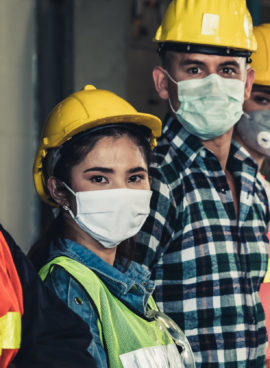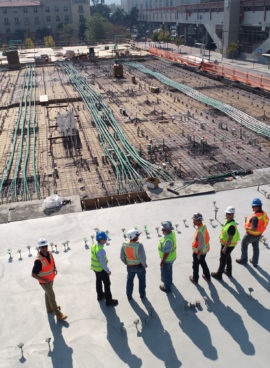Case Note: US Supreme Court Recognizes LGBTQ Employment Protections
“Today,” Justice Neil Gorsuch said, “we must decide whether an employer can fire someone simply for being homosexual or transgender.” In a landmark decision, the United States Supreme Court ruled in June 2020 that the seminal employment discrimination statute, Title VII of the Civil Rights Act of 1964, protects gay, lesbian, and transgender people. The opinion from the Supreme Court was 6-3, with Justice Gorsuch writing the majority opinion.
A. A Title VII Primer
Title VII prohibits employers from discrimination by setting or changing a person’s compensation
Back To Work: 4 Employment Considerations Under The Families First Act
As more and more Texas businesses re-open and adjust to the new normal, it is easy to forget that COVID-19-specific orders and statutes, like the Families First Coronavirus Response Act (FFCRA), still apply. The FFRCA is effective through the end of 2020.
Under certain circumstances, the FFCRA requires an employer to continue some or all of the employee’s wages through Emergency Paid Leave or Extended Leave. For more specifics about paid leave and extended family leave under FFCRA, please refer to our previous post on this topic.
Here are some further considerations to remember about FFC
Promises, Promises: Non-compete Agreements In The COVID-19 Era
How does COVID-19 impact the enforceability of non-compete agreements? Even if enforceable, is that promise still worth enforcing?
Typically, when an employer chooses to enforce a non-compete agreement with a former employee, that employee has voluntarily left her/his position and has gone to work for a competitor. The novel coronavirus and COVID-19 pandemic have resulted in mass layoffs, including layoffs of some employees with non-compete agreements. These circumstances warrant a careful look at whether and when to enforce non-compete agreements.
A non-compete agreement, or covenan
Yes, We’re Open: 3 Tips For Reopening The Physical Workplace
Gut-wrenching as it has been to close non-essential businesses or to keep essential businesses running while non-essential workers work remotely, it is proving equally, if not more, gut-wrenching to determine how to invite employees back into the physical workplace after the curve flattens and the pandemic subsides. What guidelines exist on reopening workplaces? How do employers manage employee safety concerns while regaining some sense of back-to-business? Will back-to-business ever return to pre-pandemic business as normal?
Last week, the White House released federal guidelines for “Op
3 Considerations For Layoffs In The COVID-19 Era
The numbers are at once astounding and depressing. Over 22 million Americans have filed for unemployment between mid-March and mid-April 2020. While the construction industry in Texas has been spared the worst largely due to being classified an Essential Service, it is not immune from the pandemic or rough economic times. Layoffs in the COVID-19 era raises novel employment issues. Below are 3 employment considerations in the COVID-19 era.
1. Don’t Forget the Alamo FFCRA
FFCRA, a terrible acronym if one ever existed, stands for the newly enacted Families First Coronavirus Respon







